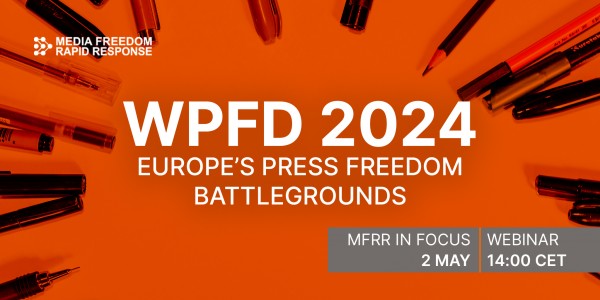On the occasion of its meeting in Abuja, Nigeria (31 October – 2 November 1999), the Executive Board of the International Press Institute (IPI), the global network of editors and media executives, expressed its appreciation of the significant contribution to press freedom made by the outgoing Director-General of UNESCO, Federico Mayor.
Since taking office in 1987, Mayor has proven to be a courageous leader who quickly set out to revitalise and reaffirm free press principles, the Board said. It is thanks to him that the controversial debate over a New World Information and Communication Order (NWICO) – a debate that caused the United States and the United Kingdom to withdraw from UNESCO and nearly brought about the organisation’s ruin – was buried. UNESCO’s Member States unanimously endorsed Mayor’s proposals to put the matter behind them once and for all, and to return the organisation to its original constitutional mission of ‘fostering the free flow of ideas by word and image.’
Under Mayor, UNESCO’s new media policy led directly to action, practical programmes, and results. As early as February 1990, while Communist regimes were still in power in many Eastern European countries, UNESCO organised an informal East/West meeting of media professionals, who discussed ways and means of providing much needed help to the emerging independent media.
One year later, at Windhoek, Namibia, UNESCO and the United Nations organised a seminar on ‘Promoting an Independent and Pluralistic African Press.’ The resulting Declaration of Windhoek, which stated that an independent, pluralistic and free press was essential for democracy and economic development, is considered today as a benchmark in the field of communication development. So important was the Declaration of Windhoek, that its date of adoption, 3 May 1991, is celebrated around the world as International Press Freedom Day. Windhoek was followed by a series of important seminars aimed at promoting independent and pluralistic media in Asia (Alma Ata, Kazakhstan), Latin America and the Caribbean (Santiago, Chile), the Arab world (Sana’a, Yemen) and Central and Eastern Europe (Sofia, Bulgaria), respectively.
The IPI Board praised Mayor and his very able Secretariat, in particular Henrikas Yushkiavitshus, Assistant Director-General for Communication, Information and Informatics, and Alain Moudoux, now Assistant Director-General of the Unit for Freedom of Expression and Democracy, for seeking a creative partnership with non-governmental organisations (NGOs) and always consulting with press freedom organisations and media professionals, not only in the preparation of the regional conferences, but in all of UNESCO’s media-related activities.
An example, the Board said, of how well Mayor understands the basic principles of press freedom, as well as the media profession, is evident in his conviction that codes of conduct for journalists can be determined only by those who practice it:
“Journalists, do not let anyone tell you what your code of conduct should be! It is up to you to establish it, observe it, and see to it that it is observed throughout the profession. It is up to you to correct any deviations and examine their impact. It is also your business to revise this code, if necessary.”
Mayor, now at the end of his second 6-year term, was always a guardian of the democratic principles enshrined in his organisation’s constitution, and refused to bow to pressure in protecting them. He has become a living symbol of the culture of tolerance and understanding that he has fought for so long, the Board said.
On 20 October, UNESCO’s Executive Board selected Koichiro Matsuura as its candidate to succeed Federico Mayor. The UNESCO Board’s recommendation goes before UNESCO’s full membership for approval on 12 November.


